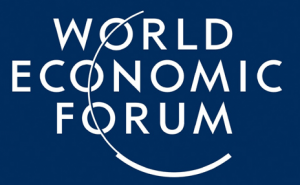Singapore is top network-ready country in the world – WEF
 A report by the World Economic Forum (WEF) says Singapore is the world’s top network-ready country in 2015.
A report by the World Economic Forum (WEF) says Singapore is the world’s top network-ready country in 2015.
The Global Information Technology Report 2015, titled; Revealed: the Digital Poverty Holding Back Gobal Growth and Development released today April 15, 2015 and copied to ghanabusinessnews.com, also finds that there is a growing digital divide within and across countries, with the full economic and social benefits of the internet only available to a minority of the world’s population.
The report arguing that many countries are failing to implement basic reforms that could increase productivity, boost economic growth and raise living standards, notes that the world’s developing and emerging economies are failing to exploit the potential of information and communications technologies (ICTs) to drive social and economic transformation and catch up with more advanced nations.
The WEF in a press statement, says data from the report’s Networked Readiness Index (NRI), which measures 143 economies in terms of their capacity to prepare for, use and leverage ICTs, suggest that the gap between the best and worst performing economies is widening.
“Those in the top 10 percent have seen twice the level of improvement since 2012 as those in the bottom 10 percent,” it says.
The report notes that this demonstrates the scale of the challenge facing developing and emerging nations as they seek to develop the infrastructure, institutions and skills needed to reap the full benefits of ICTs, as only 39 percent of the global population enjoys access to the internet despite the fact that more than half now owns a mobile phone.
The 2015 edition of the NRI ranks Singapore as the top country in the world when it comes to leveraging ICTs for social and economic impact, the United States and Japan are the only other non-European countries in the top 10, it says.
The countries in the ranking are as follows; Singapore, Finland, Sweden, Netherlands, Norway, Switzerland, United States, United Kingdom, Luxembourg and Japan.
Singapore replaces Finland, which had been number one since 2013.
The highest-placed G7 economy is the United States (7th), followed by the United Kingdom (8th). Germany, the world’s fourth-largest economy, ranks 13th, down one place on last year. Progress by the world’s larger emerging markets towards networked readiness has been largely disappointing, the statement indicates.
It notes that the Russian Federation is the highest-placed BRICS nation, climbing nine places in 2015 to 41st. It is joined in the top half of the ranking by China, which remains at 62. All other members of the group have declined, with South Africa coming next (75th, down five), followed by Brazil (84th, down 15) and India (89th, down six).
According to the WEF among those punching above their weight are Armenia (58th) and Georgia (60th), which are among the most improved nations since 2012. Outside of the Caucasus, the UAE (23rd), El Salvador (80th), Macedonia FYR (47th), Mauritius (45th) and Latvia (33rd) all improved markedly during the same period.
It also states that early-stage improvements are being witnessed in some of the world’s most fragile and least developed countries as well.
Burkina Faso, Cape Verde, Kenya, Lesotho, Madagascar, Mauritius, Nigeria, Tanzania and Uganda have all fully liberalized their ICT markets, while Kenya and Tanzania are beginning to see the benefits of similar reforms, it says.
By Emmanuel K. Dogbevi
